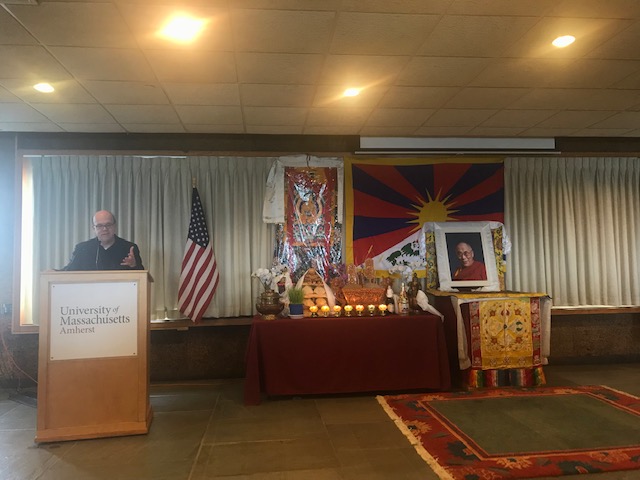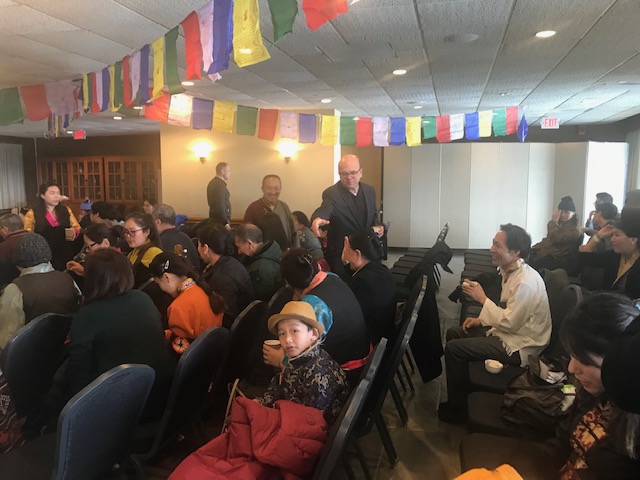The local paper The Daily Hampshire Gazette covered the event that included remarks by Congressman McGovern, Ms. Dhardon Sharling, an UMass research student and a former secretary in the Central Tibetan Administration in Dharamsala, and Thondup Tsering, president of the Regional Tibetan Association of Amherst. UMass SFT’s Tenzin Tseyang and Tenzin Tsedon were the moderators of the event. The Tibetan students from Amherst and Boston performed several cultural songs and dances.
In my remarks, I outlined a few areas in which RATA’s significance can be appreciated.
First, I said it gave hope to the Tibetan people. At a time when the Chinese authorities are increasing their efforts to break the spirit of the Tibetan people, RATA’s message of not isolating Tibet makes the Tibetan people understand that the international community does not forget them.
Secondly, it sends a strong message to China as RATA showed that the United States will continue to raise the Tibetan issue until the grievances of the Tibetan people are addressed and their freedom and rights restored.
Thirdly, RATA gave an opportunity to the Tibetan Americans to know that they have a role in the American political process. The Tibetan Americans really understood the power of their American identity as they lobbied their members of Congress to support the Reciprocal Access to Tibet Act.
Fourthly, Congressman McGovern had mentioned during the introduction process of RATA that one of the reasons he was doing so was because his Tibetan American constituents in Massachusetts were asking him. I said that this showed that supporting the Tibetan cause is in the interest of the American citizens, including those of Tibetan heritage. It is a step in the process of making the Tibetan issue a domestic issue of the United States. I do believe that this will have far-reaching consequences on the overall issue of Tibet. China will no longer be able to use the excuse of the Tibetan issue being its internal affairs to silence the international community.
In his remarks, Congressman McGovern outlined ways in which the Tibetan Americans could contribute to spreading awareness and drawing support to the Tibetan issue. I mentioned that as we move forward with a renewed sense of determination, one way the Tibetan Americans can implement the Congressman’s advice was by becoming more active. I said ICT will proudly partner with them through our programs like the Tibet Lobby Day, the Tibetan Youth Leadership Program, the Washington Internship Program for Tibetan Americans, and the Rowell Fund for Tibet.
I concluded by quoting His Holiness the Dalai Lama who said, “No matter how strong the wind of evil may blow, the flame of truth cannot be extinguished.
The event was a meaningful one. In addition to Congressman McGovern, there was a State Representative as well as officials from Amherst Town Council, which indicates that there is good interest at the local level in the issue of Tibet and Tibetan Americans.


